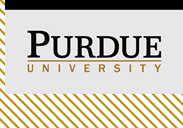
An Industry Plans Ahead
Anyone under the illusion that Osama bin Laden’s disposal to a watery grave would diminish the threat of terrorism soon found out otherwise. Especially for those in the hospitality industry.
The hospitality business — restaurants, hotels, resorts, travel and tourism — is the largest industry in the world, operating nearly everywhere and thus vulnerable to any number of business disruptions. The worldwide industry is larger than the U.S. agricultural industry, the U.S. airline industry and the U.S. motion picture industry combined. The restaurant industry alone accounts for millions of jobs and trillions of dollars in the U.S. and international economies. Among those working in the industry are hundreds of Purdue alumni from the School of Hospitality and Tourism Management (HTM), including hotelier Bruce Grosbety (HTM ’85) who was working at The Pierre Hotel in New York City at the time of the attacks.
Just days after the terrorist’s demise, the American Hotel & Lodging Association (AH&LA) issued a call for continued vigilance, urging its members to remain alert to terrorist attacks targeting hotels. AH&LA recommended that owners and managers meet with their emergency response teams to review preparedness procedures and be sure to have relationships in place with local emergency response agencies.
“Hotel attacks are not new,” says Howard Adler, the C.B. Smith Professor of Hotel Management and director of the Center for the Study of Lodging Operations in HTM, the top-ranked program in the country.

Purdue students gathered for a candlelight vigil on Sept. 12, 2001, on Slayter Hill. Photo by Dave Umberger.
What is new, Adler notes, is the hotel industry’s sudden open acknowledgement of emergency response preparedness procedures and relationships. For the major hotel chains before 9/11, whatever plans existed were closely guarded secrets — and with good reason.
Since September 2001, more than 60 attacks have occurred in hotels in more than 20 countries, according to AH&LA. Hotels rank among the top soft targets of terrorist groups around the world.
He recalls the contingencies invoked in the aftermath of Sept. 11. “Our industry is cyclical and we were headed into a recession at the time,” Adler says. “But 9/11 topped us out. A large number of companies canceled attending the annual HTM career fair we had planned later in September. Recruiting slowed down and some job offers were rescinded.”
As a result, a large number of students applied to graduate school. Adler says many students were forced to take hourly positions in the industry due to cutbacks on management ranks and trainee positions.
Of course, travel slowed too. The hijacking of planes to attack the World Trade Center shut down North American airspace for several days. When it was deemed safe to fly, air traffic decreased as much as 20 percent, according to U.S. Department of Transportation figures.











